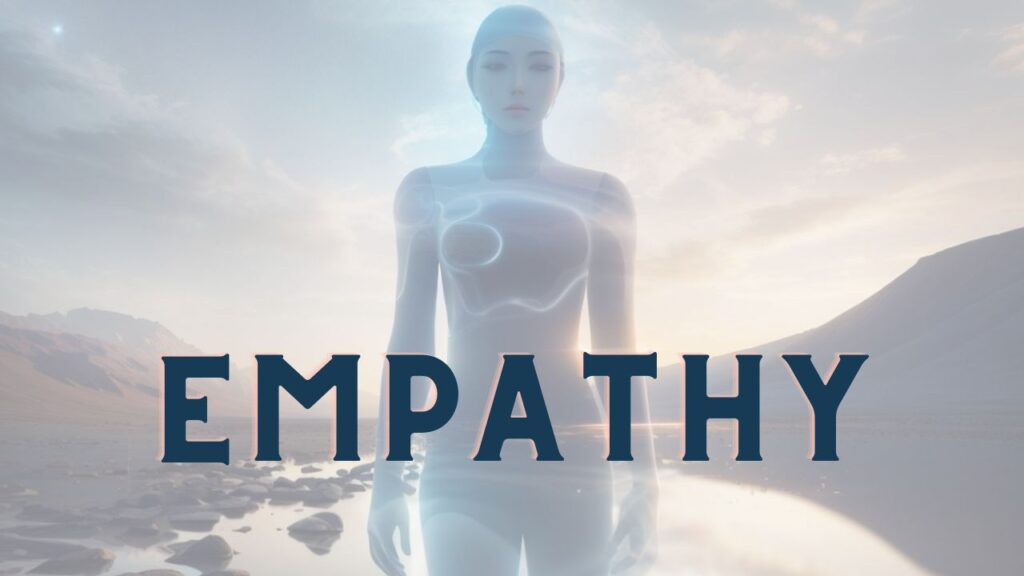Prof Mrinal Chatterjee
Remember the horrific incident of a brutally raped twelve year old girl begging for help on the streets of the holy city of Ujjain and nobody coming forward to assist her. The poor bleeding girl walked till she fell unconscious. It happened early October this year.

The question that immediately comes to mind: why didn’t people help her? What prevented them? The answer is loud and clear: lack of empathy and social responsibility.

Oxford English Dictionary defines empathy as “the ability to understand and share the feelings of another.” Empathy goes beyond sympathy, which is broadly defined as understanding how someone else feels.
Empathy enables us to actually experience those feelings for ourselves. We feel the emotional pain of others as if it was our own. There is a Sanskrit word which comes quite close to it: samabedana (sama means same, and bedana means pain). There is another word in Sanskrit: sahanubhuti, which means the same feeling (sama means same, anubhuti means feeling). However, in English it translates to sympathy.
Studies in neuroscience have discovered that the key brain regions which evoke empathy in a person appear to be the amygdala, which is involved in the regulation of emotional learning and the reading of emotional expressions, and the anterior cingulate cortex (ACC), which activates when people experience their own pain or observe others in pain. But the most important region of all is the medial prefrontal cortex (MPC), also known as the prefrontal lobe.
A “hub” for social information processing, the MPC modulates self-awareness and our awareness of other people’s thoughts and feelings. It also appears to play an important role in “marking” certain emotional experiences so as to provide us with emotional shortcuts to actions that are positive and therefore likely to be rewarding.
These discoveries show that empathy is hard-wired and that we are primed for morality, hence the writer Jeremy Rifkin’s claim that these circuits are the source of humanity’s desire for “intimate participation and companionship”.
This finds resonance with several Indian seer’s claim of the basic goodness of human being and also with Scottish Enlightenment philosopher Adam Smith’s notion of a “moral sentiment”. As Mark Honingbaum writes in the Observer ..(they) have come to regard empathy as intrinsically pro-social. When we empathise, they argue, we mirror the distress of an “other” and, unless our brains are damaged or we are developmentally abnormal, we are moved to alleviate their suffering. The result is that, like other modern moral sentiments such as trust and altruism, empathy is increasingly seen as a “social glue” and the evolutionary basis of human cooperation.
Empathy is vital for the running of a civilized society. Empathy is important for developing social relationships and being able to live with others. In fact empathy has often been termed as social glue- that binds the members of a society- even if they are not personally related or even know one another.
So why are we experiencing this downward trend in empathy levels, especially in young people? There aren’t any clear answers to this question. Some experts are suggesting ICT (Information Communication Technology) may be largely to blame.
ICT may make communication easier and more frequent, however, it promotes only superficial connections rather than the deeper connections you can only get in person. As Dr. Michele Borba, author of UnSelfie: Why Empathetic Kids Succeed in Our All-About-Me World, puts it: “It’s very hard to be empathetic and feel for another human being if you can’t read another person’s emotions. You don’t learn emotional literacy by facing a screen. You don’t learn emotional literacy with emojis.”
The second reason could be the constant push to succeed. To be rich, at any cost. To acquire material possession- at any cost. And to be happy at any cost- as if happiness is a physical entity and one can buy it with loads of money. This misguided and fallacious notion of success and happiness is making us soulless morons.
Empathy is the bond on which human civilization sustains and thrives. Without empathy the bond slackens, and so does the growth and advancement of the civilization. Without empathy, we stop growing and gradually regress. Presently we are in a peculiar situation- call it an existential crisis. Our body and science are in the twenty first century- poised for even further development. But our mind is regressing to the middle ages. A me-only existence will give rise to a hollow civilization.
Therefore, we need to practice empathy- at individual level, at family level, at community level and at societal level. Nature has endowed us with empathy. We need to let the feeling flow and translate it into action.
(The author is Regional Director Indian Institute of Mass Communication, IIMC Dhenkanal. Views are personal)






















